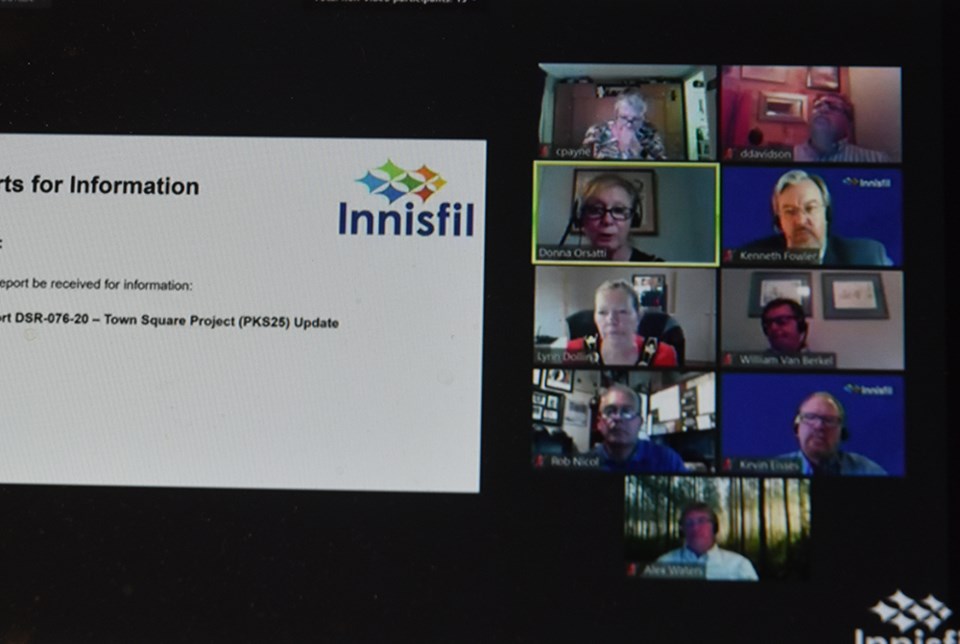As the COVID-19 emergency response continues, and residents continue to face layoffs and business closures, the Town of Innisfil has extended its property tax relief measures for the remainder of the year.
“It may be many months before things settle into a new normal, at the earliest,” noted staff in the latest financial report to Innisfil Council. “At this point, it is not clear what financial relief options will ultimately become available for the municipality, residents and businesses.”
Innisfil approved its 2020 Capital and Operating budgets back in November 2019 – long before the pandemic hit. The budgets resulted in a blended tax rate that would cost the average residential property owner an additional 2.55 percent, or $111 per year.
After COVID-19 restrictions came into play, on March 25 council suspended interest and penalty charges until July 1, and suspended fees for returned items, withdrawal of post-dated cheques, and the reactivation fee for pre-authorized payments, as a first step.
Now, at the recommendation of staff, council has extended its waiving of interest and penalties on outstanding property taxes until the end of the year, providing some relief for stressed property owners.
The staff report recognized that this will represent a significant loss of revenue to the municipality; interest and penalty payments normally provide the town with approximately $98,000 per month, or nearly $900,000 in a nine month period.
“It is a significant amount of money for the town,” staff acknowledged – but pointed out that adding a 1.25 percent per month penalty on taxes owing at this time could “create a significant burden for property owners as they work to catch up on their property taxes during the economic recovery.”
The tax registration process, leading to potential tax sales of property, is also suspended until the end of the year. Under the provincial Emergency Management and Civil Protection Act, the statutory deadlines for tax sales were suspended – but even if the emergency order is lifted, the town will halt the process until year-end, and work with owners to develop payment plans.
Also suspended until Dec. 31, 2020 are a number of charges and fees, including the $38 charge for returned cheques, the $145 charge for a zoning compliance letter, and the $1,150 fee for Draft Plan of Subdivision conditions extension.
The suspension of construction by provincial order – although now lifted – is recognized as having set some projects back and disrupted schedules.
The additional measures, adopted at the June 3 meeting of council, included deferring due dates for tax installment payments by another month. The town had originally deferred the due dates to June 29 and Sept. 29, for the first and second installments on residential and farm taxes; now those due dates will be July 30 and Oct. 29.
Commercial and industrial tax installments remain due on Aug. 28 and Oct 29.
The staff report also provided an estimate of the overall cost of financial relief programs: $1,015,725, plus a reduced cash flow, only partly offset by the province deferring education property taxes.
“Fortunately, due to prudent financial planning in prior years, the town has sufficient funds set aside to manage the financial impacts of these relief measures,” the report noted. The town currently has approx. $4.9 million in its Property Tax Rate Stabilization Reserve – and staff are working to mitigate the impacts, through cost cutting measures.
Council took one further step and committed to adjusting its budgets for 2021 and 2022, to ensure a 0.0 percent increase in the blended tax rate for next year, and no more than a 1 percent increase in 2022 – even though it may lead to a reduction in some service levels expected by residents.
Coun. Rob Nicol was concerned by the decision, but agreed to support the measure. “I understand now we’re supporting residents with some stability,” he said. “We’re all working together to tighten our belts over the next two years.”
Coun. Alex Waters noted that to keep the property tax increase to 0 and 1 percent, the town must make cuts to “pick up the slack” from both inflationary increases, and rate increases imposed by other levels of government that might not be making the same effort.
“I’m surprised there isn’t some way of working with the school boards, working with the county,” to co-ordinate holding the line on expenditures, Waters said.
“I think this is going to be received well by residents,” said Coun. Dona Orsatti – but she warned, “There will be levels of service that will be impacted.”
She told residents, “Don’t be angry with us. To achieve this 0 percent, it has to come from somewhere.”
Mayor Lynn Dollin agreed, noting that the town will have to cut its tax rate increase to “below zero,” and urged staff to talk with residents about “what they’re willing to sacrifice.”
The Town of Innisfil’s new Chief Financial Officer, Mike Melinyshyn, explained that other levels of government, like the County of Simcoe, have their “own difficulties, maintaining tax flows,” in order to deliver necessary services.
Melinyshyn suggested that over the coming months, the town will have a “better understanding of the service levels we’ll be able to offer the residents.”
The 1 percent Special Capital Levy, normally added to property taxes annually, is also “paused,” until 2023.
Coun. Orsatti pointed out, “This is a pause; it’s not permanent” – and that 2023 could be a tough year for taxpayers.



